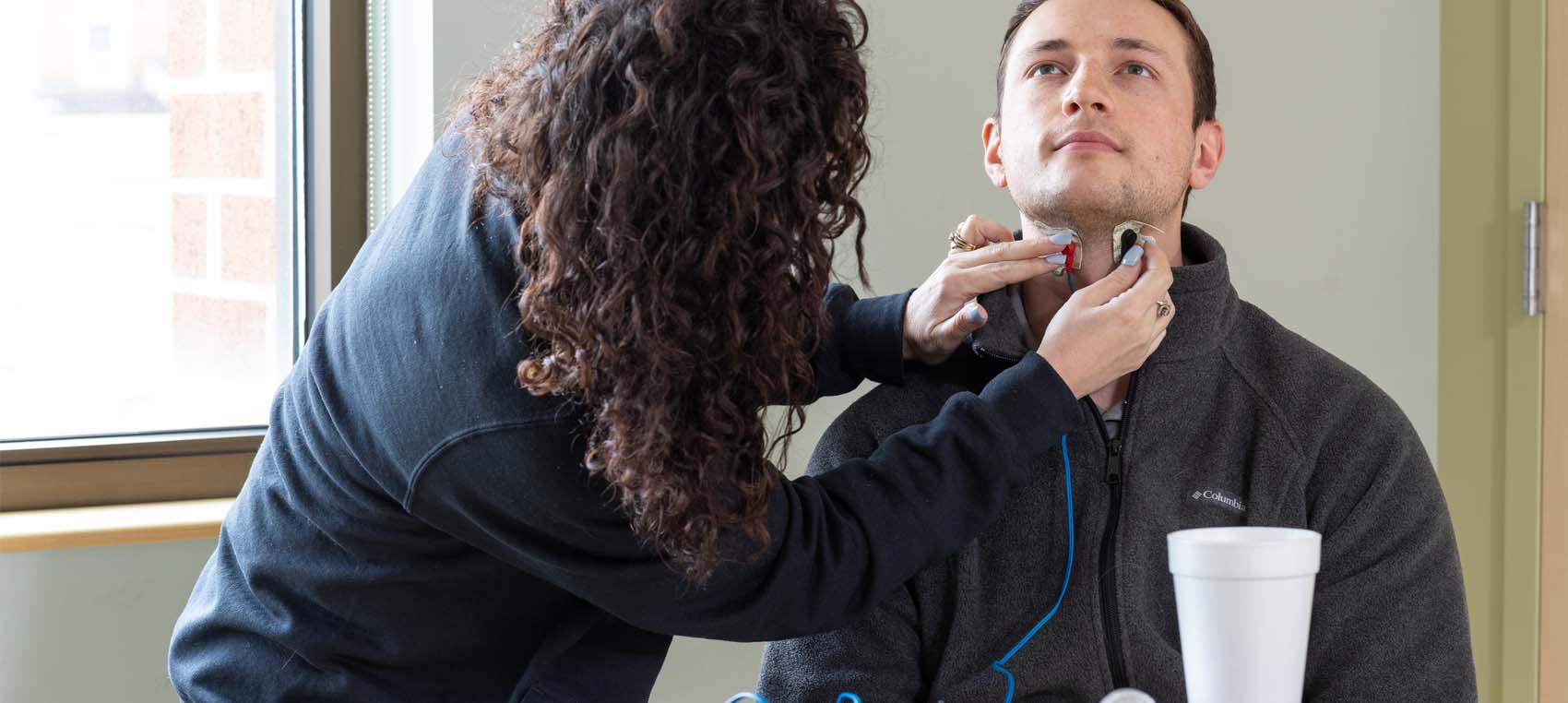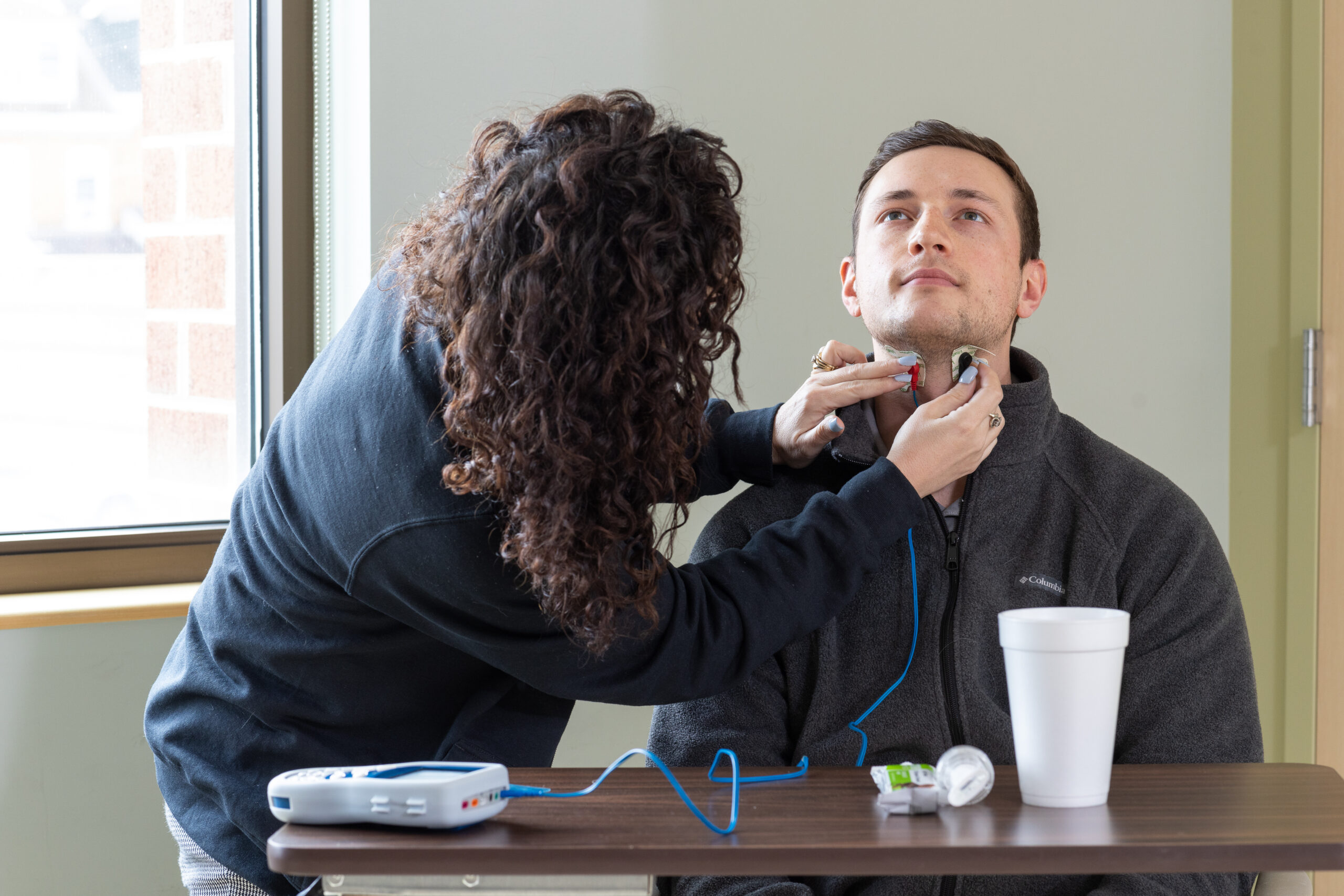Good Shepherd’s Voice Therapy Program is designed to help you improve or alter your voice to successfully function at home, school, work and in the community. We base treatment on your specific needs and goals.
Before starting voice therapy, you need a script from an otolaryngologist (ear, nose, throat or ENT).
Vocal Impairments
The Voice Therapy Program at Good Shepherd Rehabilitation Network provides evaluation and treatment to children and adults who experience vocal impairments.
Vocal impairments may be the result of learned vocal behaviors including vocal/respiratory inefficiency, vocal overuse, misuse, abuse and/or those of psychogenic origin.
They may also result from neuro muscular diseases (e.g., multiple sclerosis, Parkinson’s disease, Myotonic Dystrophy, ALS), stroke, non-traumatic brain injury, traumatic brain injury, spinal cord injury, cancer and viral infections (e.g., laryngitis, COVID-19).
Voice Therapy for Transgender/Transsexual
Good Shepherd Rehabilitation Network offers a voice modification program for the transgender community focused on enhancing communication for male-to-female (MTF) transsexuals.
Broader areas of language and communication are addressed, with attention to linguistic differences between men and women, the use of nonverbal communication and the influence of physical appearance on gender perception.
Voice therapy may also include education and instruction in optimizing the use and range of current respiratory and phonatory systems to achieve desired gender-specific outcomes.
Symptoms of Voice Impairment
- Breathy vocal quality
- Double voice
- Glottal fry
- Harsh vocal quality
- High pitch/intensity
- Hoarse vocal quality
- Hypernasal speech
- Hyponasal speech
- Insufficient breath support for phonation
- Insufficient replenishing breaths
- Low pitch/intensity
- Monotone pitch/intensity
- Nasal emission
- Pitch breaks
- Shallow inspiration
- Speaking too fast/too slow
- Uncontrolled expiration
Voice Disorders Treated
- Functional aphonia/psychogenic aphonia or dysphonia
- Gender modification
- Laryngopharyngeal reflux
- Muscle Tension Dysphonia (MTD)
- Paradoxical vocal fold movement (PVFM)
- Presbylarynx/aging larynx
- Puberphonia
- Spasmodic dysphonia
- Traumatic laryngitis
- Ventricular phonation
- Vocal cord dysfunction (VCD)
- Vocal Hyperfunction
- Vocal cord nodules
- Vocal cord paralysis
- Vocal paresis
Voice Disorder Treatment Options
The Voice Therapy Program at Good Shepherd Rehabilitation Network includes the use of several evidence-based treatment options, which often require the speech language pathologists to obtain specialty certifications and training:
- Confidential Voice training
- Lessac Madsen Resonant Voice Therapy (LMRVT)
- Lee Silverman Voice Training (LSVT)
- Myofascial Release
Additional voice therapy techniques include the use of special instrumentation such as biofeedback, neuromuscular electrical stimulation and computer voice analysis programs. Patient-specific exercise training programs are prescribed to strengthen breathing and voice production, as well as provide behavioral checklists for vocal and environmental modification.
Voice Therapy Locations
Good Shepherd Rehabilitation Network offers voice therapy at multiple locations throughout the Lehigh Valley, including:
Request an Appointment
To request an appointment with one of our voice specialists, please call 1.888.44.REHAB (73422) or fill out the form below.


